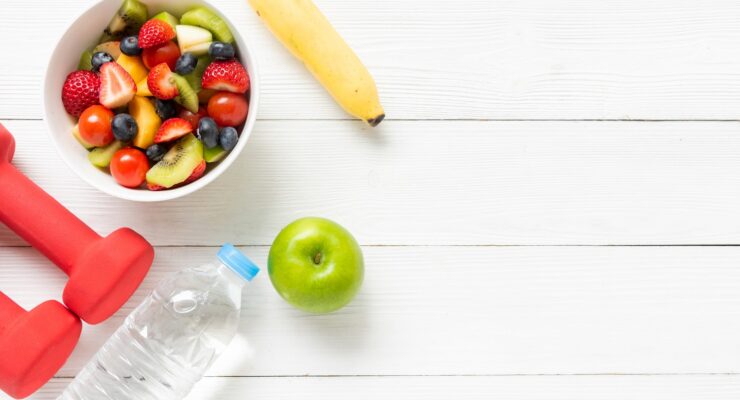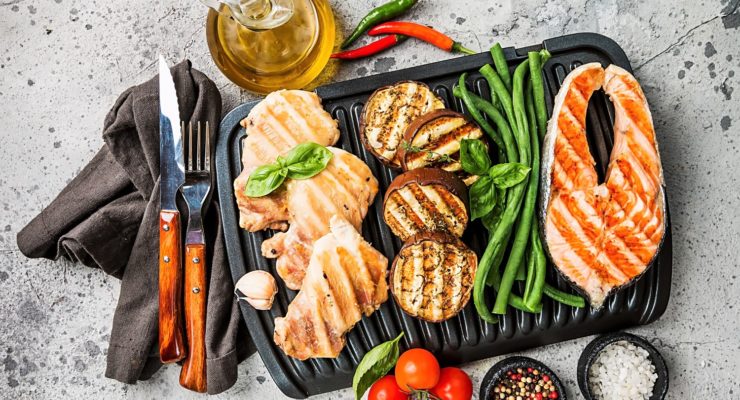
You’d think being concerned about your weight would be a plus. You’d be motivated to eat better, move more and take better care of yourself. And it can be. But sometimes, it isn’t.
Scientists have a word for chronic dieters—they call them “restrained eaters.” These are folks who are very concerned about their weight, but that concern doesn’t mean they’re careful about what they eat or that they even lose weight. What they wind up doing most of the time, research says, is feeling guilty about eating and then eating more.
Restrained eating promotes “maladaptive eating patterns such as binge eating and emotional eating,” wrote a group of Dutch researchers in a 2012 study in the journal Psychology and Health. These well-meaning dieters make one tiny slip, feel terrible, then binge to make themselves feel better, which only makes them feel worse. Restrained eating is actually considered a risk factor for obesity. Sound like anyone you know?
Here are three ways to improve your relationship with food so you finally get off that dizzying merry-go-round:
1. Forget the concept of “good” foods and “bad” foods.
There’s no such thing. There’s only food. Yes, eating fruits and vegetables is better for your health and your waistline than consuming an entire sleeve of mint chocolate cookies, but that doesn’t mean you should never eat another mint chocolate cookie as long as you live. Our brains are wired to seek out pleasure and you can’t fight programming. Science calls our desire to eat for pleasure “hedonic hunger.”
If you have a healthy relationship with food, you know it’s fine to feed your need once in a while or even regularly, as long as you practice moderation. If there’s a mint chocolate cookie or two waiting for you every day on your diet plan, you don’t have to feel deprived or guilty. Freeing yourself of those emotions will remove two of the biggest triggers for weight loss failure that exist. A study published in the journal Physiology and Behavior suggests that avoiding those pleasurable foods may increase your stress levels and bring on emotional eating.
If you’re too scared to take even a nibble of a favorite food because you’re afraid you’ll go too far, be reassured: Dietitians Evelyn Tribole and Elyse Resch in their book, Intuitive Eating, say that when their clients eat whatever food they want, about 90 percent of what they eat is good nutritious food and only 10 percent of their diet is “junk.”
2. Learn when enough is enough.
Many people can lose weight just by eating only when they’re hungry and stopping when they’re full. Unfortunately, since it takes about 20 minutes for your digestive system, with its hormone and enzyme messengers, to alert the brain that you’re full, you may miss what scientists call “satiety signals.”
Experts recommend getting back in touch with your hunger and fullness signals by keeping a food diary for a few weeks in which you list not only what you ate but how hungry you were when you started and how full you felt right afterward and 10 or 15 minutes later. If you’re not really that hungry (you think, “I could eat but I’m not ravenous” or “I’m not hungry but that sure smells good”) make a conscious effort to either eat later or eat less. Pay attention to how you feel when you’ve eaten half of what’s on your plate. If you sense that you’re just about there, eat a few more bites then wait for the signal that tells you to stop.
3. Be present with your food.
Have you ever finished a meal and immediately afterward thought, “What did I just eat?” Chances are you weren’t paying attention. Maybe you were eating in front of the TV or a computer or with a smartphone in your hand—all things that studies have linked to weight gain. British researchers who looked at a number of studies on how attention affected food intake found that people who were distracted while eating ate more than those who focused on their meal.
Practice what’s called “mindful eating.” Declare eating spaces a tech-free zone. Slow down your eating (use chopsticks or put your fork in your non-dominant hand to force yourself to eat slower). Take small bites and chew your food well. Not only will you be paying more attention to and savoring your food, say Harvard experts, you’ll likely eat less because you’ll enjoy it more. You’ll also be more able to detect those quiet fullness cues that tell you it’s time to put down your fork.












